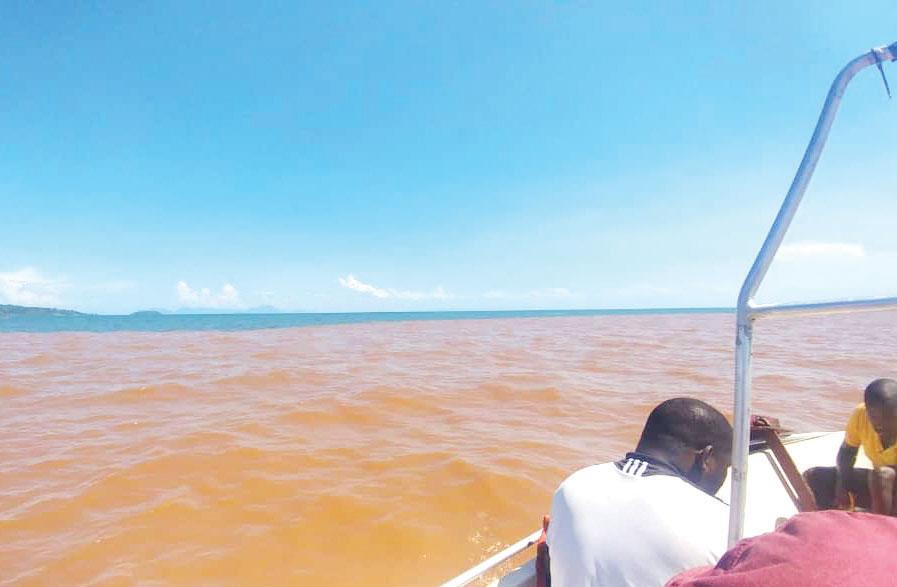Africa-Press – Malawi. The Fisheries Department has complained that Lake Malawi continues to receive a lot of silt from tributaries that flow into the water body following large amounts of rainfall that Malawi is receiving.
The tributaries include Bua, Linthipe, Songwe and North Rukuru rivers. Senior Deputy Director of Fisheries responsible for capture fisheries, Maxon Ngochera, said the silt is affecting breeding of fish such as chambo and mbuna.
Ngochera said the trend has been exacerbated by poor agricultural practices such as farming on river banks. “Since cichlids are rock dwellers, it comes as no surprise that they like to spawn among rocks and caves. However, when there is a lot of silt, some of these rocks are submerged.
“Again, during the initial stage of the breeding period, the colours of male fish will also become much more vivid than normally, such that when a female is in spawning condition, it would easily see the male. This becomes difficult when the waters are muddy,” he said.
Ngochera added that chambo breeds in shallow waters on the shores and that when the silt comes, the eggs are washed away. He proposes the use of catchment management, which he said can be achieved through the combined efforts of the community, government and non-government organisations working towards common and sustainable targets to achieve the balanced use of natural resources.
Agreeing with Ngochera, environmentalist Alufeyo Mwalukomo said there is need to fully enforce policies and frameworks that were formulated to protect both land and aquatic life. The frameworks include the Natural Resources and the Fisheries Acts.
“For example, according to the regulations on water and natural resources, the river banks are supposed to be cultivated at least 15 metres from the river. So, it is an issue of making these regulations known to the public and enforcing them,” Mwalukomo said. Lake Malawi, the third-largest freshwater lake in Africa, has the biggest number of endemic fish species in the world and is a biodiversity hotspot
For More News And Analysis About Malawi Follow Africa-Press






